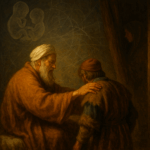
Isaac and Rebecca: Deception or Wigner’s Friend Paradox?
Synopsis The narrative of the “stolen blessings” in Parashat Toldot presents a profound moral paradox: How could Rebecca, a righteous prophetess, and Jacob, the archetype

Synopsis The narrative of the “stolen blessings” in Parashat Toldot presents a profound moral paradox: How could Rebecca, a righteous prophetess, and Jacob, the archetype
And it came to pass, when he was come near to enter into Egypt, that he said unto Sarai his wife: “Behold now, I know

This essay explores a novel parallel between quantum mechanical principles and the biblical creation narrative through etymological analysis of the Hebrew terms “erev” (evening) and
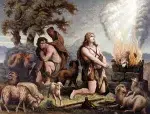
In his commentary on this week’s Torah Portion, Yitro, Rabbi Chayim Vital, writing in the name of his teacher, the Ari-zal, states that Abel was

The collapse of the wave function is the process of revealing hidden possibilities. Reducing uncertainty reveals information. Until the wave function collapse, the system is

And afterwards she bore a daughter, and called her name Dinah. (Genesis 30:21) In my previous essay, “The Conflict Between Joseph And His Brothers—A Gender

And out of the ground made the Lord G‑d to grow every tree that is pleasant to the sight, and good for food; and the
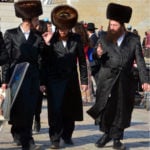
Today is Chol Hamo’ed Sukkot – the intermediate days between the first and the last days of the holiday of Sukkot. These days are not
(A popular summary of the paper “Towards Futuristic Interpretation of Quantum Mechanics” by Alexander Poltorak being currently prepared for publication) Quantum mechanics (QM) is one

And all the tithe of the herd or the flock, whatsoever passeth under the rod, the tenth shall be holy unto the Lord.” (Leviticus 27:32)
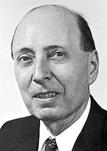
Amicus est Socrates, magister meus, sed magis est amica veritas. “Socrates is my friend but a greater friend is truth” – Plato c. 428-348 BCE.
Coming soon to a theater near you. Watch a trailer:
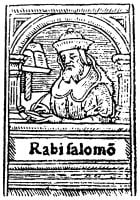
And G‑d saw all that He had made, and behold it was very good, and it was evening and it was morning, the sixth day.
The Torah portion, Re’eh, talks about the Sabbatical Year—in Hebrew, Shemitah—the Seventh year. When the Sabbatical year comes, all loans are forgiven, and Jewish servants
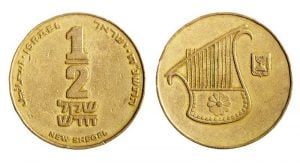
This they shall give, everyone who goes through the counting: half a shekel according to the holy shekel. Twenty gerahs equal one shekel; half of

As I wrote in my post, Schrödinger Menorah: Burning And Not Burning, the Lubavitcher Rebbe, Rabbi Menachem Mendel Schneerson, explains the miracle of Chanukah as

According to the Saadia Gaon, these two Torah portions – Nitzavim and Vayelech – are really one portion, which sometimes is split into two. In the
In my last year’s post “Balak – Interference of Souls,” I suggested that Balak needed Balaam (Bilam) to cause constructive interference to make the curse

There were men who were ritually unclean [because of contact with] a dead person, and therefore could not make the Passover sacrifice on that day.

The blessings and the admonitions of Bechukotai (Leviticus 26:3–27:34) are viewed as the result of entanglement and disentanglement with G‑d respectively.
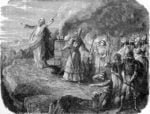
Balak the son of Zippor saw all that Israel had done to the Amorites. Moab became terrified of the people, for they were numerous, and
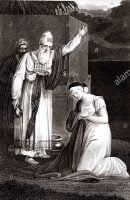
The story of Sotah, a suspected adulteress, is very troubling on the first blush. Why would a woman be subjected to such humiliation? The Lubavitcher
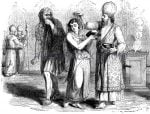
In quantum mechanics, the state of a physical system is described by the so-called wave function (or the “wavefunction”). All attempts by Schrödinger, who first

Today is Rosh Chodesh Adar Bet – the New Moon and the beginning of the second month of Adar. If we ever to have a month
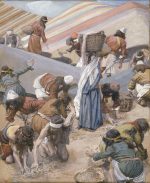
And the house of Israel called the name thereof manna; and it was like coriander seed, white; and the taste of it was like wafers